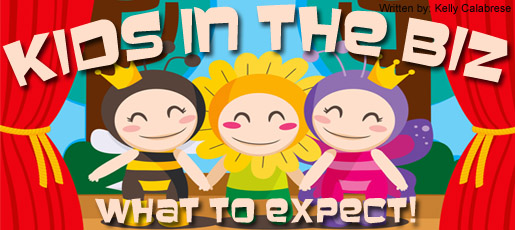One of the biggest challenges for children in show business is maintaining a healthy social life. From time constraints to geographic barriers, there are many obstacles that can prevent children from connecting with their peers and building strong relationships. We’re going to discuss some of the common challenges that children in show business face and provide strategies for parents to help their children maintain healthy social lives.
Time Constraints
Children in show business often have demanding schedules that leave little time for socializing with their peers. From early morning calls to late-night rehearsals, their days can be filled with work-related activities. This can make it difficult for children to participate in extracurricular activities or spend time with their friends outside of work.
One possible solution is to schedule social activities during breaks in filming or during off-hours. This could include inviting friends to visit on set, participating in group activities organized by their agents or managers or joining extracurricular clubs or sports teams outside of work.
Another option is to connect with other child actors who are facing similar challenges. There are organizations, such as the Young Actors’ Theatre Camp and the Young Performers Collective (Canada), that offer opportunities for young performers to connect with each other and engage in social activities.
It’s also important for child actors to have a support system of family and trusted friends who can provide emotional support and guidance. This can help them navigate the unique challenges of their profession while maintaining a sense of normalcy in their personal lives.
Something as simple as going to the mall or movies with their non-actor friends allows children to develop important social skills, such as communication, problem-solving and conflict resolution. Being able to make plans with their friends and follow through with them can also boost their confidence and self-esteem. As they navigate the mall with their peers, they’ll have to make choices about where to go, what to do and how to spend their money. This can be a valuable learning experience that teaches them about budgeting, planning and prioritizing.
Giving your child some freedom and independence can help them develop a sense of trust and respect for you as a parent. By allowing them to make decisions and learn from their experiences, you’re showing them that you have confidence in their abilities and are willing to support their growth and development.
It took me a long time to learn that.
Geographic Barriers
Many children in show business have to travel frequently, whether it’s for filming, auditions or press events. This can make it difficult to build long-term relationships with their peers, especially if they’re constantly moving from city to city or even country to country.
Today’s world of technology can help! Kids can connect with friends and family members from anywhere in the world. They can also use social media platforms like Instagram or Zoom to share updates and stay connected with loved ones.
As a parent, you’ll need to use your own judgment regarding letting your child on social media. I’m sure you’ve read all about the negatives and potential dangers surrounding platforms such as TikTok, so please discuss the ramifications with your child. Depending on their age, you may also want to monitor the child’s online activity.
Child actors can also seek out opportunities to make new friends while on location. This could include participating in local activities, joining a sports team, club or attending community events. By getting involved in the local community, they can expand their social circle and make new connections.
Differences in Lifestyles
Show biz kids may have different lifestyles than their peers who are not in the industry. They may have to adhere to strict diets or exercise routines, for example, or they may not be able to attend school regularly. These differences can make it difficult for them to connect with their peers and can lead to feelings of isolation.
In my opinion, prioritize your child’s education. Acting may be an exciting opportunity, but their education should remain a top priority. Ensure that they attend school and keep up with their studies even while on set or attending auditions.
My other advice is to create boundaries between work and home life. It’s important to maintain balance and ensure that your child has space for leisure activities outside of acting. Encourage them to pursue hobbies they enjoy and spend time with friends outside of the industry.
I understand how difficult this can be, but as a parent, you just have to make it happen. If you feel overwhelmed, step back and think about the big picture – is your child being in show business worth everything you and your family had hoped for? If yes, then the answer is clear.
All of the above challenges can have a negative impact on your child’s mental health. Feelings of loneliness and isolation can lead to depression and anxiety, and the pressure to succeed in the industry can take a toll on their emotional well-being.
They may struggle with self-esteem issues if they feel they are not living up to expectations or when roles dry up. The lack of stability in their schedules also affects them negatively as they have less time for schoolwork, friends or hobbies which are crucial for healthy emotional development.
It’s important to recognize the signs of anxiety and depression in your child actor. It’s natural for children to feel nervous or anxious before an audition or performance, but it becomes concerning when these feelings persist and interfere with their daily life. Anxiety disorders are the most common mental health conditions affecting children and adolescents, with many experiencing symptoms by the age of 18.
Some common signs of anxiety in children include excessive worry or fear, avoidance of certain situations or activities, physical complaints such as headaches and stomachaches, difficulty sleeping or concentrating and irritability. Depression symptoms can be similar in children but may also include sadness or hopelessness, loss of interest in activities they once enjoyed, changes in appetite and sleep patterns, low energy levels, difficulty making decisions or thinking clearly.
There’s so much to discuss regarding mental health that it’s impossible for me to give tips on everything. But here’s what I learned over the years – hopefully you will find it useful:
Encourage open communication – Encourage your child to talk about their feelings and emotions. Listen attentively without judgment, and offer support and understanding.
Validate their feelings – Let your child know that their feelings are normal and valid. Avoid minimizing or dismissing their feelings, even if they seem trivial to you.
Create a routine – Establish a daily routine that includes healthy habits such as regular exercise, a balanced diet and sufficient sleep. This can help your child feel more in control and less overwhelmed. I know that getting enough sleep is an issue but at what point do you want to jeopardize your child for that one role?
Practice relaxation techniques – Encourage your child to practice relaxation techniques such as deep breathing, meditation or yoga. These techniques can help reduce stress and anxiety. (My kids take yoga. However, for me, yoga would increase my stress because I’d be away from work for an hour. To each their own!)
Limit exposure to triggers – Identify triggers that may be causing anxiety or depression in your child, such as social media, peer pressure or certain situations. Limit exposure to these triggers as much as possible. Triggers don’t necessarily have to be from a situation – they can be actual words. Example, if we weren’t able to secure tickets to the latest Taylor Swift concert, I wouldn’t mention Taylor Swift while my child is memorizing lines or at rehearsal.
And last but not least…
Seek professional help – If your child’s anxiety or depression is severe or interfering with their daily life, seek the help of a licensed mental health professional. They can provide appropriate treatment, such as therapy, to help your child manage their symptoms.
Maintaining social lives is of utmost importance for children, especially those in the business. Despite the demands of the industry, children need to have healthy relationships with their friends and families to foster emotional growth, self-esteem and social skills. Show business can be a challenging environment for children, but a balanced social life can provide a support system that helps them cope with the stresses and pressures of the industry. Ultimately, the benefits of maintaining a social life for children in show business extend beyond their time in the industry and can positively impact their lives in various ways.








